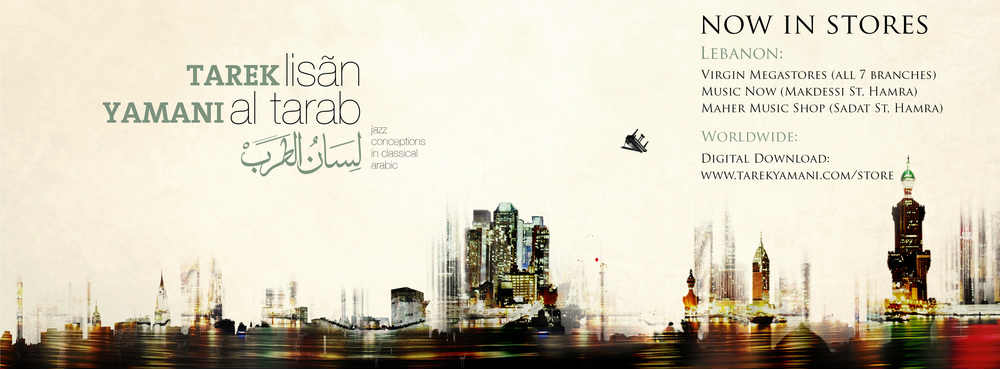
Tarek was born and raised in Beirut and is an award winning composer and a self-taught jazz pianist. He has performed all over the world, was invited to be among the 32 musicians from 13 countries to perform in the inaugural of the “International Jazz Day” held at the UN headquarters in New York and founded, organized & produced a unique initiative called “Beirut Speaks Jazz” which aims to promote jazz in Lebanon by igniting adventurous collaborations between artists from the worlds of rock, pop, tarab, rap, blues and alternative over the foundations of jazz. [TarekYamani]
For all Jazz lovers, check out this recent article on Tarek’s latest album Lisan el Tarak, where he merged Afro American Jazz with Arabic rhythms, and listen to the tracks [Here].
With him, Tarek brought his Arabic musical heritage to the United States. Arabic rhythms like the Dabke or the Sama’i. Treasures from the Great Arabic Songbook called Muwashahat. And most importantly Tarab, a basic concept of the Arab musical world, meant to induce trance and ecstasy in the musicians and the audience alike, particularly in live performances. It was in New York where it all merged: the Afro American Jazz and the Arabic music. It was in New York where Tarek refined his own brand of music, the Afro Tarab. It was in New York where Lisan al Tarab was recorded.
New Dabke, finally, is Tarek Yamani’s own composition. It features a pearling piano that culminates in the true essence of Tarab, the “let go”. There is ecstasy, there is trance, and one would hope that this song goes on for hours, until a full transcendence of the mind is reached, until all self-control has vanished.
Lisan al Tarab is the perfect expression for what Tarek is doing. It is a play on words with Lisan al Arab, the most comprehensive dictionary of the Arabic language that Ibn Manzur had completed in 1290. Tarek Yamani clearly acts in the tradition of Ibn Manzur. Where the elder explained and interpreted classical Arabic words, the younger has produced an audio book on reinterpreting Tarab. Differently said: this is Jazz with a Lebanese accent.